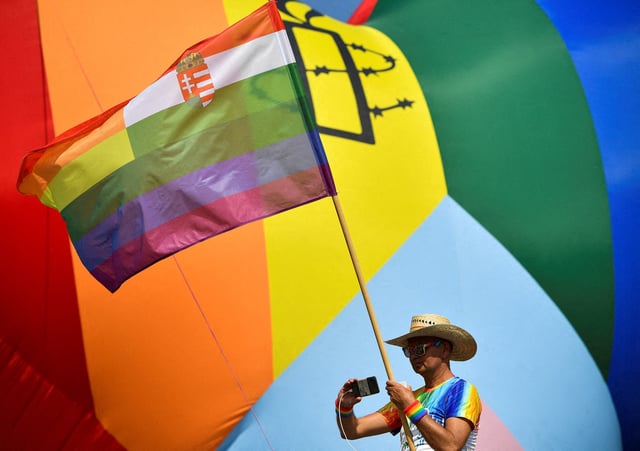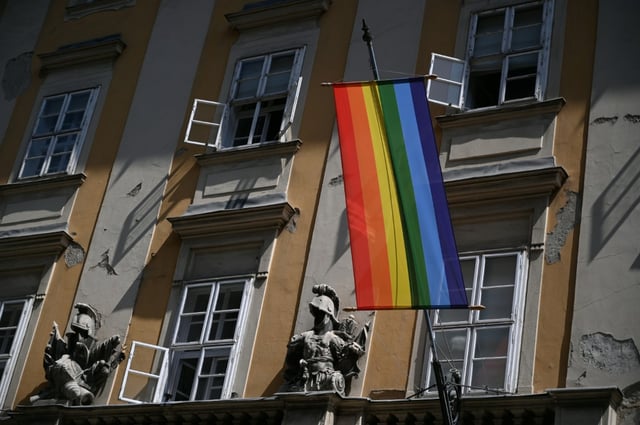Overview
- Organizers and volunteers are defying the police ban to prepare for the June 28 march with a projected record turnout
- Hungarian legislation passed in March empowers police to ban Pride events, fine organizers and attendees up to €500, and use facial recognition to identify offenders
- More than 30 European embassies, including those of Britain, France and Germany, have publicly backed the march, while the U.S. embassy declined to sign the statement of support
- The Hungarian Helsinki Committee and two other rights groups have pledged to provide legal aid to attendees facing fines and potential prison sentences
- Critics view the ban as part of Prime Minister Viktor Orban’s wider Christian-conservative agenda ahead of next year’s general election


